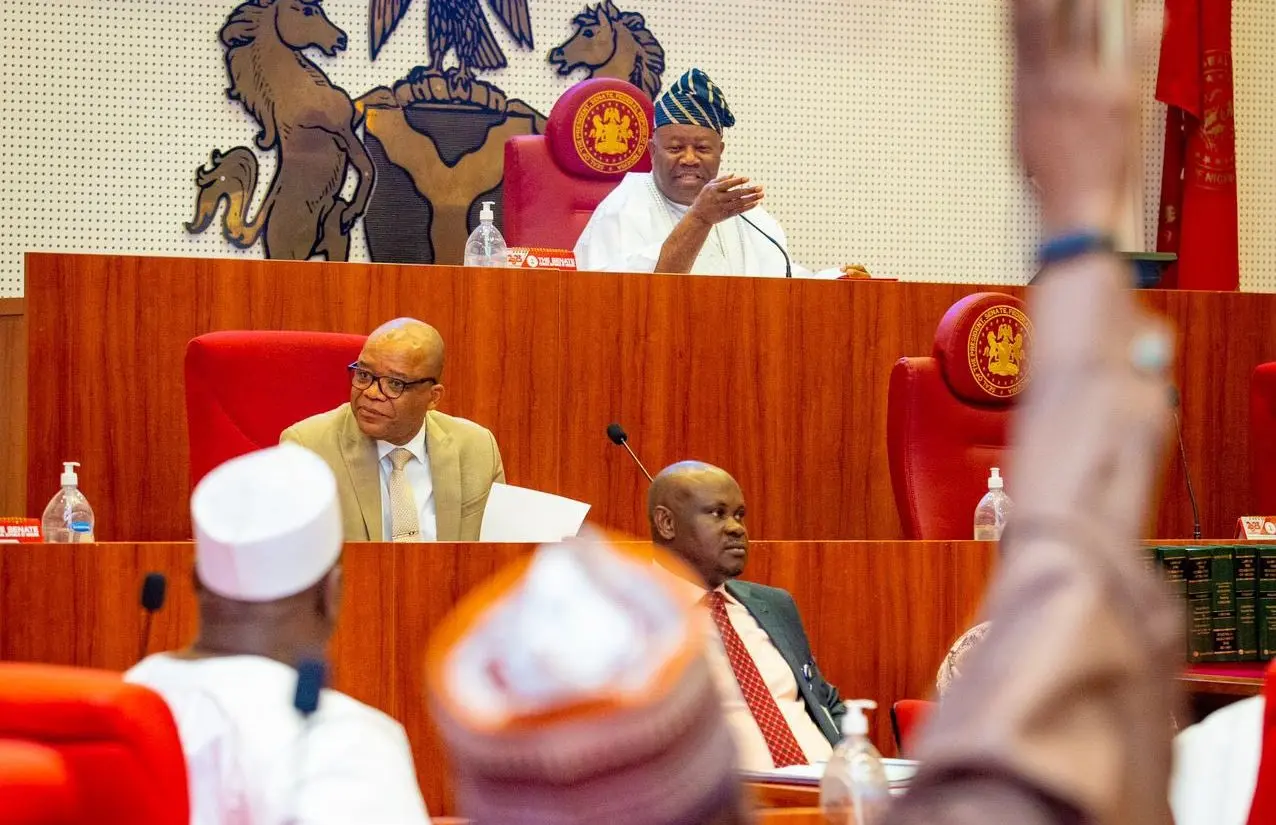The Nigerian Senate has given the green light to President Bola Ahmed Tinubu’s request for external borrowing exceeding $21 billion, marking a significant step towards fully executing the 2025 national budget.
The approved financial package includes a mix of funding sources: $21.19 billion in foreign loans, €4 billion, ¥15 billion, a $65 million grant, and domestic borrowings amounting to approximately ₦757 billion through federal bonds. Additionally, the plan authorizes the government to raise up to $2 billion via foreign-currency-denominated instruments within the domestic market.
The approval followed the presentation of a report by Senator Aliyu Wamako, Chairman of the Senate Committee on Local and Foreign Debts. He clarified that the borrowing request had been submitted to the National Assembly on May 27 but faced delays due to the legislative recess and incomplete documentation from the Debt Management Office.

Senator Olamilekan Adeola, Chairman of the Senate Committee on Appropriations, emphasized that the loan components had already been factored into the 2025 Appropriation Act and the Medium-Term Expenditure Framework.
“This approval ensures that all funding sources both internal and external are now aligned to implement the 2025 budget in full,” he said.
Despite the general backing the plan received, some lawmakers raised questions about transparency and equitable allocation.
Senator Sani Musa clarified that the loan disbursements would be spread over six years, not limited to 2025, and defended the borrowing strategy as a standard economic practice.
“No modern economy thrives without borrowing. What we are doing falls within global norms,” Musa stated.
Supporting the plan, Senator Adetokunbo Abiru, Chairman of the Senate Committee on Banking, Insurance and Other Financial Institutions, assured that all loan terms conform with the Fiscal Responsibility Act and Debt Management laws.
“These loans are largely concessional, with long-term repayment schedules some up to 35 years and are strictly dedicated to capital and developmental projects,” Abiru said.
However, Senator Abdul Ningi (Bauchi Central) voiced caution, calling for greater clarity and public accountability.
“Nigerians must be told exactly how much is being borrowed on their behalf and the specific uses. Transparency is non-negotiable,” Ningi stressed.
The approved funds are earmarked for a wide range of priority sectors, including infrastructure, security, agriculture, housing, power, and digital connectivity. A standout provision is the allocation of $3 billion to revamp the long-neglected Eastern Rail Corridor, linking Port Harcourt to Maiduguri.
Senator Victor Umeh (Anambra Central) welcomed the move, calling the rail investment historic.
“This is the first time I’ve seen $3 billion allocated for the eastern rail line. That alone earns my full support,” Umeh declared.
Deputy Senate President Jibrin Barau praised the committee’s efforts and reaffirmed that the loan package reflects inclusive national planning.
“This borrowing plan touches every region of the country. It proves that the Renewed Hope Agenda is on course,” he said.
Senate leadership concluded by underscoring that all borrowed funds must be strictly applied to capital development, in accordance with national finance regulations.




